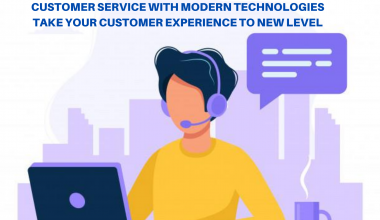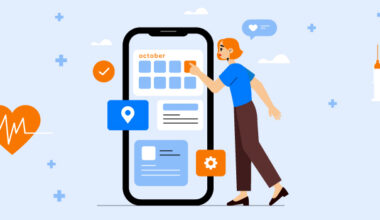News Analysis: As Apple’s iPhone sales continue to soar, some are wondering what Apple could do with its installed base. Trying to answer that, we take a look at 10 ways Apple could use the iPhone as a weapon against carriers, developers, competitors and others.
With news breaking that Apple is selling the iPhone at full price without requiring customers to buy a contract, some are wondering what CEO Steve Jobs has up his sleeve. Is this a thinly veiled attempt to help users unlock their iPhones and bring them to T-Mobile?
Is it a shot over AT&T’s bow, saying Apple is done playing nice? Or is it a response to Google’s decision to offer Nexus One smartphones online, rather than in carrier stores? While all of those scenarios are possible, it’s most likely that Apple is simply trying to get rid of some of its iPhone supply before it prepares for a new version of the device later in the year.
In any case, the speculation over this move is running rampant. But perhaps it underscores something that too many people have overlooked: Apple can use the iPhone as a weapon.
Whether AT&T, Google and customers like it or not, the iPhone is an extremely important device in today’s mobile market. The product has single-handedly revitalized AT&T’s business, changed the mobile market and ensured that consumer desire will always in some way be determined by the products Apple puts out.
That kind of power can have far-reaching effects. And it means that Apple could capitalize on its standing in the marketplace and use the iPhone to impose its will.
Let’s take a look at how Apple could use the iPhone as a weapon against any and all stakeholders.
Pressure AT&T
Apple holds the most power over AT&T. Unlike so many other carriers in the mobile market, AT&T is heavily invested in the iPhone. In fact, it’s one of the key reasons why the company has been so successful attracting and maintaining customers. Apple is well aware of that.
If and when the company wants to finally break free from AT&T, Apple can use the iPhone to work out just about any deal it wants. Or it might even work out a sweetheart deal that would keep the iPhone exclusive to AT&T. And unfortunately for AT&T, there’s nothing it can do about it. Without the iPhone, it would be in trouble.
Take on Developers
Apple’s contentious relationship with developers could get worse if the company decides to use the iPhone as a weapon against them. The problem for developers is that Apple’s installed base is huge compared with those of the makers of other touch-screen devices.
So, even though developers might not like the fact that Apple’s App Store policies are secretive and sometimes draconian, they don’t want to push the company too far for fear of losing that key revenue stream. At the same time, Apple knows that if it really wants to control developers, it can use that fear to do so. Developers are in a bad spot.
App Store Mania
Even though Apple has gone out of its way to limit content that it doesn’t want in the App Store, there’s more that can be done. If Apple really wants to, it can create specific rules for what can be allowed in its store and what cannot. Worried that they would lose App Store revenue, buttonholed developers would have no choice but to listen.
Consumers would also need to live with those rules if they wanted to keep using the iPhone. The App Store is an extension of the iPhone’s power. Apple would have little trouble using it to dominate.
Take on Other Carriers
Although Apple’s power is most forceful against AT&T, the company can still use the iPhone to take on other carriers. Thanks to the iPhone’s success, Apple can go to Verizon Wireless or T-Mobile to see what kind of deal either company would offer.
If it finds something a little better than what it has at AT&T, we could see a drastic shift in the way Apple does business in the mobile market.
Apple could opt to go multicarrier and give preferential treatment to, say, Verizon Wireless, and totally change how the iPhone is perceived in the market. And there would be nothing AT&T, T-Mobile or Sprint could do about it.
Consumer Desire?
Although consumers have been calling on Apple to add new features to the iPhone, including multitasking, Jobs has done little to swiftly bring desired features to the device. Instead, he has waited until he’s good and ready to update the iPhone. That’s a problem. Thanks to the iPhone’s success, Apple has little reason to worry about complaints from consumers.
Sure, it wants to satisfy consumer desire, but the company clearly feels that it can do that whenever it wants. After all, Apple controls the iPhone and decides what’s in it. What can consumers really do about it? The longer it has that control, the less Apple might listen.
Use Patents on Vendors
If Apple is successful in its patent-infringement case against HTC, the entire mobile market could change. Apple’s lawsuit includes several charges, such as alleged infringement of both the iPhone’s screen-unlock functionality and the way users move around a Web page in a mobile browser.
With a victory, Apple could bring a lawsuit to every other vendor in the market that it believes is violating its patent. That could help the company dominate the market even more. Watch out for that patent lawsuit. If Apple wins, it could be lights out for some of its competitors.
Eliminate Conventional Sales
Apple has the power to drastically change the way vendors offer their phones. Currently, Google sells the Nexus One smartphone from its own Website. Carriers are concerned that Google’s retail model could prompt other vendors to follow suit.
Well, what if Apple does? Such a move could send shockwaves through the industry and cause carriers to start worrying about bottom lines that rely heavily on in-store sales. If Apple and Google, arguably the market’s most influential companies, set a new retail standard in the market, carriers will need to start worrying.
Use it to the iPad’s Advantage
The iPhone can be used to the iPad’s advantage if Apple plays its cards right. The tablet industry could be a significantly profitable space for Apple. But that will only be true if the iPad enjoys the kind of success Apple has witnessed with its iPhone and iPod. The beauty of the iPad is that it runs Apple’s iPhone OS.
With just a few changes here and there, Apple can improve the tablet’s operating system and surpass the competition. And since that OS is desired above all others, it should only help Apple sell iPads. The iPhone OS is just as much a weapon as the iPhone itself.
Mac OS X’s Trojan Horse?
Even though Apple has substantially lower operating system market share than Windows in the desktop market, the iPhone could help Apple attract more PC users to its side. In the tech industry, the halo effect is extremely important. Essentially, as users try products from a company and like what they see, they are more likely to buy other products from that company.
Apple’s iPhone is extremely successful. In some cases, it has brought new customers to Apple’s side. If the company can find a way to capitalize on those converts and deliver them to Mac OS X, Microsoft could feel the effect. We simply can’t underestimate the iPhone’s importance to Mac OS X.
Pressure the entertainment industry
The iPhone is also an iPod. Realizing that, it’s important to remember that the more iPhones Apple sells, the more power it wields against the music and movie industries. Time and again, the entertainment business has railed against Apple’s power and attempted to limit it as much as possible.
But each time, it has failed. As Apple sells more iPhones, it can bring that burgeoning installed base (plus all the iTunes purchases iPhone owners make) and use it as leverage in its negotiations with record labels and film studios. And those companies will have little choice but to give in to some of Apple’s demands.
Simply put, the more iPhones Apple sells, the more troublesome it is to, well, just about everyone it’s up against.
Resource:
http://www.eweek.com/c/a/IT-Management/10-Ways-Apple-Could-Use-the-iPhone-As-a-Weapon-790036/






